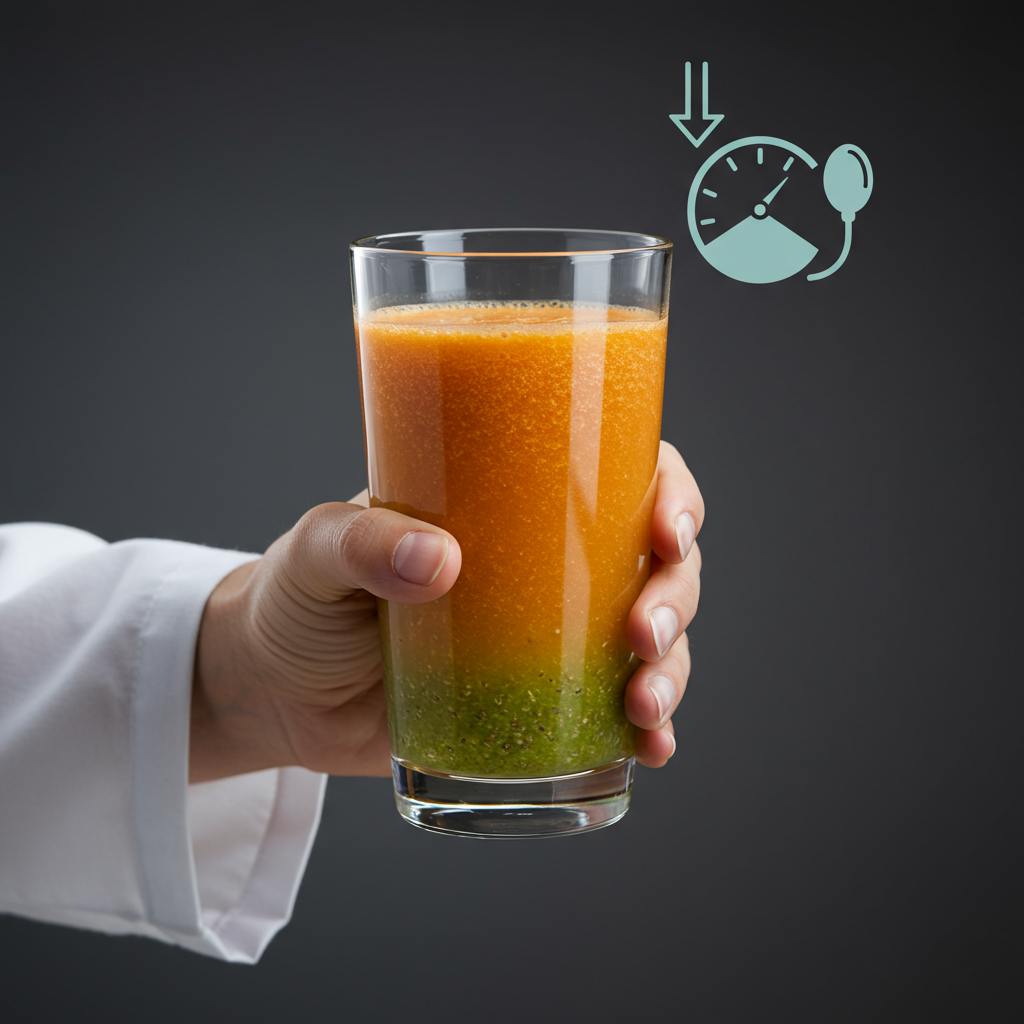High blood pressure, medically termed hypertension, poses a significant threat to millions globally. Often labeled the “silent killer,” it frequently presents with no noticeable daily symptoms, yet silently increases the risk of serious conditions including heart disease, stroke, and kidney failure. In the UK alone, it affects approximately one in six adults, impacting over 14 million people. Hypertension occurs when the force of blood consistently pushing against the walls of your arteries and veins is too high, placing immense strain on your entire cardiovascular system. Identifying and managing this condition early is crucial to prevent severe complications down the line.
For many, managing high blood pressure involves established lifestyle adjustments: engaging in regular physical activity, reducing the intake of processed foods, and strictly limiting salt consumption. These traditional methods are foundational to heart health. However, recent research highlights the potential of a surprising natural intervention – the daily consumption of a specific vegetable juice – that could offer a significant boost in the ongoing effort to maintain healthy blood pressure levels.
Breakthrough Research on a Common Vegetable Juice
A notable study conducted by Queen Mary University of London has shed light on the remarkable effects of drinking beetroot juice. The research investigated whether a daily dose of this vibrant purple drink could impact blood pressure in individuals diagnosed with hypertension.
The study involved 64 volunteers who were already managing high blood pressure. Participants were asked to consume a 250ml glass of beetroot juice every single day as part of the trial. By the conclusion of the study period, the results showed a significant reduction in the participants’ blood pressure readings. This drop was substantial enough to bring their pressure down into what is considered a “normal range.”
What Experts Say About the Findings
The British Heart Foundation (BHF) commented on the Queen Mary study, noting its significance. They stated that the research provided the “first evidence of a long-lasting reduction in blood pressure by supplementing the diet with nitrates in patients with high blood pressure.” Crucially, the BHF highlighted that “The level of reduction was similar to that from some forms of blood pressure medication.” The study also reported no adverse side effects among participants consuming the daily beetroot juice dose.
Professor Amrita Ahluwalia, who led the pioneering research at Queen Mary University, further emphasized the potential impact of their findings. She is quoted as saying that the study “has proven that a daily inorganic nitrate dose can be as effective as medical intervention in reducing blood pressure.” The appealing aspect, she noted, is that this effective component comes directly from natural sources like beetroot and other leafy green vegetables.
The Science Behind Beetroot Juice and Blood Pressure
The beneficial effect of beetroot juice is attributed primarily to its high concentration of inorganic nitrates. When you consume foods rich in nitrates, your body converts them into nitric oxide. Nitric oxide is a molecule that acts as a vasodilator, meaning it helps to relax and widen your blood vessels. This relaxation allows blood to flow more easily through the arteries and veins, reducing the force against the vessel walls and, consequently, lowering blood pressure.
While beetroot is particularly famous for its nitrate content, it’s not the only source. Incorporating a variety of other nitrate-rich vegetables into your diet can also contribute to this effect. These include leafy greens such as spinach, kale, and lettuce, as well as vegetables like carrots, celery, and leeks.
Maximizing Nitrate Intake from Vegetables
Professor Ahluwalia offered practical advice on how best to preserve the nitrate content in these beneficial vegetables. Since dietary nitrates are water-soluble, they can be lost when vegetables are boiled. To get the most nutritional benefit, especially for blood pressure management, she recommends alternative preparation methods. Steaming, roasting, or extracting the juice, as was done in the Queen Mary study, are all effective ways to consume dietary nitrates and potentially positively impact your blood pressure.
Integrating Natural Aids into Blood Pressure Management
The prospect of using a natural product like beetroot juice to help manage blood pressure is understandably appealing to many people looking for alternatives or supplements to conventional medication. However, it is vital to approach these findings with appropriate caution. Both the British Heart Foundation and Professor Ahluwalia have stressed the importance of further research. They noted that more extensive studies with larger sample sizes are needed before beetroot juice could be considered an “official solution” or a standard replacement for prescribed medications.
Currently, beetroot juice and other nitrate-rich foods are best viewed as valuable dietary components that can support overall heart health and potentially aid in blood pressure management when incorporated into a balanced lifestyle. They should not replace prescribed medical treatment without consulting a healthcare professional.
A Holistic Approach to Heart Health
Managing high blood pressure is most effective when approached holistically, combining dietary interventions with other healthy lifestyle choices. Regular physical activity is a cornerstone of cardiovascular health. Experts, including cardiologists at Jefferson Health and supported by the British Heart Foundation and NHS guidelines, recommend that most adults aim for at least 150 minutes of moderate-intensity exercise per week, spread out over several days. Alternatively, 75 minutes of vigorous-intensity exercise can offer similar benefits for those with limited time.
Moderate activity should leave you feeling warm and slightly breathless, like brisk walking or cycling. Vigorous activity makes breathing hard and fast, such as running or intense sports. Starting “low and slow” and gradually increasing activity levels is advised. Regular exercise helps lower both blood pressure and cholesterol, significantly reducing the risks of heart attack, stroke, and other vascular issues.
Integrating dietary strategies, like consuming nitrate-rich foods and juices, alongside consistent exercise, maintaining a healthy weight, limiting salt and processed foods, managing stress, and avoiding smoking, provides a comprehensive approach to supporting healthy blood pressure and overall cardiovascular well-being.
Frequently Asked Questions
What drink is mentioned by experts for lowering blood pressure?
Heart experts and a study from Queen Mary University of London highlight beetroot juice as a drink shown to potentially lower blood pressure. Research indicates that drinking a 250ml glass daily led to a significant reduction in blood pressure in participants with hypertension, bringing their readings down to a normal range.
How does beetroot juice potentially help lower blood pressure?
The primary component responsible for the blood pressure-lowering effect in beetroot juice is inorganic nitrate. When consumed, these nitrates are converted by the body into nitric oxide. Nitric oxide helps relax and widen blood vessels, improving blood flow and reducing the pressure against artery walls, thereby lowering blood pressure.
Can beetroot juice replace blood pressure medication?
Based on current research, experts emphasize that while promising, beetroot juice should not replace prescribed blood pressure medication. Although studies show effects similar to some medications, more extensive research with larger groups is needed before it is considered an official treatment or standalone solution. Always consult your doctor before making changes to your medication or treatment plan.
Conclusion
High blood pressure is a prevalent and serious health issue requiring proactive management. While traditional methods like diet, exercise, and reduced salt intake are essential, emerging research points to the potential benefits of incorporating specific foods and juices into your routine. The Queen Mary University study provides compelling evidence that a daily glass of beetroot juice may significantly lower blood pressure, offering a natural approach that works by increasing nitric oxide levels.
While these findings are encouraging and supported by organizations like the British Heart Foundation, it is crucial to remember that beetroot juice is currently considered a supportive dietary measure, not a cure or a replacement for medical treatment. A holistic strategy combining a nutrient-rich diet, including nitrate-rich vegetables, with regular exercise and professional medical guidance remains the most effective way to manage hypertension and protect your long-term heart health. Always discuss any potential dietary changes or natural remedies with your doctor.



